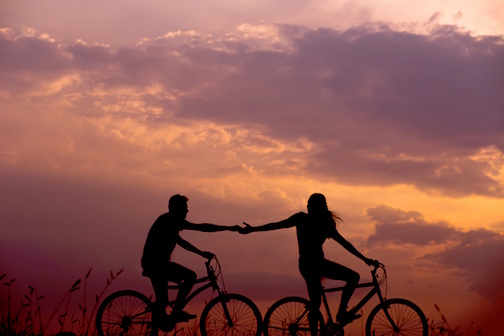Emotional Dependency vs. Emotional Freedom
By Dr. Margaret PaulJuly 13, 2009
Are you emotionally dependent? Has this wreaked havoc in your relationship? Discover what causes emotional dependency and how to attain emotional freedom.
 What is Emotional Dependency?
What is Emotional Dependency?
Lydia consulted with me because her relationship with her husband, Andrew, was falling apart. Andrew had moved out, stating that he could no longer tolerate Lydia's neediness and constant pull on him to make her feel loved and secure.
Now that they were separated, Lydia's emotional dependency was getting even worse. She was deeply addicted to Andrew making her feel better, if only through a brief text message.
Lydia believed that her feelings of safety, worth, and lovability had to come from someone else. She took no emotional responsibility - no responsibility for what she was telling herself and how she was treating herself that were causing her pain and panic.
As we worked with the Inner Bonding process, it became clear to Lydia that her panic was being caused by her own self-abandonment, not by Andrew abandoning her. She was constantly abandoning her inner child by judging herself, ignoring the feelings resulting from her self-judgments, and then handing her inner child to Andrew to take care of. When she couldn't reach Andrew, she would collapse into tears and sooth herself with TV and food. She constantly felt panicked, not because Andrew was not there for her, but because she had never developed an inner loving adult capable of taking loving care of herself.
As a result of her self-abandonment, Lydia was constantly emotionally needy and pulled on Andrew with her tears and anger. While she said she loved Andrew, her primary intent was to get love rather than to give and share love. Lydia was emotionally dependent.
What is Emotional Freedom?
We are emotionally free when:
- We do not make others, the past, or circumstances responsible for our feelings - we do not see ourselves as victims. Instead, we take responsibility for causing our own suffering by noticing how we treat ourselves and what we tell ourselves, and we nurture ourselves through the grief, sorrow, and loneliness that come from painful life events, such as the death of a loved one.
- We are not governed by our feelings. Our feelings guide us, but we are not led around by them. We recognize that our positive feelings of love, peace, and joy are letting us know that we are taking loving care of ourselves, and that our negative feelings of anger, fear, hurt, anxiety, depression, guilt, shame, and so on are letting us know that we are abandoning ourselves.
- We do not collapse into our feelings, becoming our feelings. Instead, we are a witness of our feelings and learn from them and/or nurture them.
We are emotionally free when we learn from our feelings and take loving action on our own behalf to take responsibility for our painful feelings, and for our feelings of worth, lovability, safety and security.
Relationships and Emotional Responsibility
Relationships flounder when one or both partners are emotionally dependent on the other partner for their feelings of worth, lovability, safety, and security. When you abandon yourself and make your partner responsible for your pain and your self-worth, then you are stuck trying to have control over your partner taking care of you - doing for you what you need to be doing for yourself.
When you are not loving and valuing yourself, you do not have love to share with your partner. You are constantly trying to get love rather than share love. Trying to have control over getting the love that you need to be giving to yourself is what creates most relationship problems.
When each person in a relationship decides to learn how to take responsibility for their own feelings, they can then come together to learn, grow, play, and share love. This is much more fun than trying to get love!
Heal your relationships with Dr. Margaret’s 30-Day online video relationship course: Wildly, Deeply, Joyously in Love.
Join IBVillage to connect with others and receive compassionate help and support for learning to love yourself.
Photo by Everton Villa
 Send this article to a friend
Send this article to a friend  Print this article
Print this article  Bookmarked 18 time(s)
Bookmarked 18 time(s)
| Related Articles |
|---|
| Why Do You Want to Communicate With Your Partner? |
| Neediness |
| Emotional Dependency, Needing Space |
| 7-Step Foolproof Guide to Creating a Terrible Relationship |
Comments
| Author | Comment | Date |
|---|---|---|
| Join the Inner Bonding Community to add your comment to articles and see the comments of others... | ||

Daily Inspiration
When we connect with Spirit and we fill ourselves with love, our love overflows and we want to share it with others. How do you want to share your love today? How do you want to show your caring? What service to others do you want to express today?
By Dr. Margaret Paul

 Share with Del.icio.us
Share with Del.icio.us Share with Digg
Share with Digg






